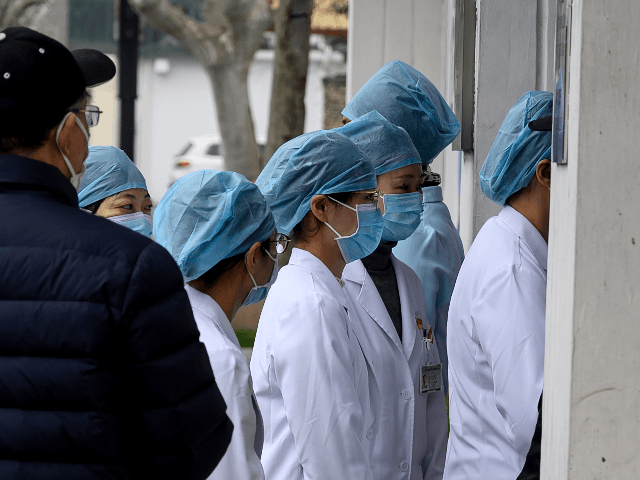Five medical workers in China’s Yunnan province were detained last week for sharing videos about the Wuhan coronavirus on social media, a move that reminded angry Chinese citizens of how the late whistleblower Dr. Li Wenliang was persecuted for telling the truth about the epidemic in its early days.
According to Chinese state media reports quoted by the Epoch Times, the five individuals – identified only by their surnames – were detained for filming coronavirus patients and using the WeChat social media platform to share the recordings. Four of them were given ten-day administrative detention sentences and all were slapped with fines that worked out to a little over $70 in U.S. currency.
The vague charges filed against the five medical workers suggested they were somehow jeopardizing China’s battle against the coronavirus by sharing the information, without detailing exactly what “bad effects” they had inflicted.
The Epoch Times reported a sharp social media backlash to the detentions, with many Chinese citizens angry that the Chinese Communist Party (CCP) seemed to have learned nothing from the persecution of Li Wenliang, who was initially harassed and humiliated by the authorities for “spreading rumors” but retroactively rebranded as a hero shortly before the virus killed him:
“The CCP system has completely lost its ability to correct itself. It would be foolish to expect them to have a conscience,” one netizen wrote.
Another said: “Li Wenliang just died, and they [authorities] are persecuting medical workers who tell the truth again!”
[…]
Netizens saw the latest punishment on the Yunnan medical staff as a sign that the authorities are still more concerned about its image. “So you still expect the government to improve in this outbreak? Stop dreaming.”
“[The CCP] is running towards its own demise,” another said.
The backlash appears to have had an immediate effect on the CCP, which used its media organs to chastise police in the city of Wenshan for harassing the medical workers, as reported by the South China Morning Post:
In an unusual reaction to the charges brought in Wenshan, Health Times, a newspaper under the Communist Party mouthpiece People’s Daily, published a commentary on Friday questioning the police’s actions.
Authorities in the city should make public exactly what information the five medical workers leaked, it said.
Even though the information they shared might have been about patients or frontline efforts to battle the outbreak, their actions were neither malicious nor did they cause any “bad effects”, it said.
Rather, it said, they might have been doing the public a service.
The Wenshan police bureau quickly issued a notice that the detentions meted out to four of the five defendants were suspended, without explaining why.
However, the SCMP noticed that China’s Cyberspace Administration also blacklisted an app called Pip Gaoxiao that was being used by Chinese citizens to share videos, including those related to the coronavirus. Major social media platforms were ordered to clamp down on coronavirus posts and shut down numerous accounts for “illegally reporting activities.” The CCP might have decided to handle the five Yunnan medical workers with kid gloves, but it’s not showing any sign of relaxing media controls.
Yunnan province was the source of another noteworthy coronavirus story this week: a plan to track contact between residents by requiring them to use their cell phones to scan a code every time they enter or leave a public place.
Critics quoted by the South China Morning Post trounced the plan as intrusive, demanding, confusing, and more useful for intimidating people than fighting the virus epidemic:
The mini-program, whose name roughly translates as “Fight the coronavirus in Yunnan”, requires users to enter their phone number and receive a verification code to register. After that, they scan the “in” and “out” code when visiting public places such as airports, railway stations, subways, bus terminals, shopping malls, supermarkets, residential areas, as well as hospitals and pharmacies.
The mini-program does not ask users to enter their name and national identity numbers.
[…]
The move has sparked criticism on social media as to the effectiveness of such a screening process, especially since not everyone owns a smartphone with the required app. A Weibo post by state media people.cn seeking public opinion on the plan received a mixed response, with some indicating support but many others commenting “I disagree.”
“There are still many elderly people who do not use smartphones,” said one Weibo user. “Once implemented, there will no doubt be congestion and queues in public places [to scan the code]. The risk of infection will be higher,” said another.
Another city, the Zhejiang provincial capital of Hangzhou, is requiring residents to log their health status into a web page every time they return home. If they report symptoms that suggest possible coronavirus infection, the system automatically flags them for seven or 14 days of quarantine.

COMMENTS
Please let us know if you're having issues with commenting.